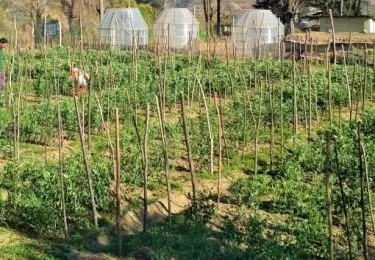
Agriculture
In a significant move towards sustainable agriculture, the Himachal Pradesh government has introduced the HIM-UNNATI scheme with an allocation of Rs 150 crore. This ambitious initiative aims to promote natural farming practices across the state, enhancing agricultural productivity while safeguarding the environment. The scheme represents a pivotal step in the state’s commitment to integrating eco-friendly farming methods and addressing the challenges faced by traditional agriculture.
Table of Contents
The HIM-UNNATI Scheme: An Overview
The HIM-UNNATI (Himachal Pradesh’s Initiative for Modernization of Natural Agriculture) scheme is designed to transform the agricultural landscape of Himachal Pradesh by promoting natural farming techniques. The scheme encompasses a wide range of activities, including financial support for farmers, training programs, and infrastructure development to facilitate the transition to natural farming practices.
The Rs 150 crore funding will be allocated towards various components of the scheme, including subsidies for purchasing organic inputs, development of community-based composting units, and support for the creation of organic certification bodies. The scheme aims to make natural farming accessible and economically viable for farmers across the state, from smallholders to larger agricultural enterprises.
Objectives of the HIM-UNNATI Scheme
The primary objectives of the HIM-UNNATI scheme are multifaceted, addressing both environmental and economic aspects of agriculture:
- Promotion of Natural Farming: The scheme seeks to encourage farmers to adopt natural farming practices, which avoid synthetic chemicals and fertilizers. This approach not only enhances soil health but also reduces the environmental impact of farming.
- Economic Support for Farmers: By providing financial assistance and subsidies, the scheme aims to ease the transition for farmers who may face initial costs associated with natural farming. This support is crucial for ensuring that the shift to sustainable practices is economically feasible.
- Capacity Building and Training: The scheme includes provisions for training programs and workshops to educate farmers about natural farming techniques. This knowledge transfer is essential for enabling farmers to implement effective and sustainable practices on their farms.
- Infrastructure Development: Investment in infrastructure, such as composting units and organic input production facilities, is a key component of the scheme. These developments will support the broader adoption of natural farming methods and create a more robust ecosystem for sustainable agriculture.
- Environmental Conservation: By promoting natural farming, the scheme aims to enhance soil fertility, conserve water, and reduce pollution from chemical runoff. This contributes to the overall health of the ecosystem and aligns with broader environmental conservation goals.
The Impact of the Scheme on Agriculture in Himachal Pradesh
Himachal Pradesh, with its diverse topography and climatic conditions, is well-suited for the adoption of natural farming practices. The HIM-UNNATI scheme is expected to have several positive impacts on the state’s agriculture sector:
- Enhanced Soil Health: Natural farming practices focus on maintaining and improving soil health through organic methods. This results in better soil structure, increased nutrient availability, and improved water retention, leading to more resilient agricultural systems.
- Increased Crop Productivity: Research has shown that natural farming can lead to higher crop yields over time, as healthy soils support better plant growth. The HIM-UNNATI scheme aims to replicate these benefits across the state, contributing to increased agricultural productivity.
- Improved Farmer Livelihoods: By reducing dependency on expensive chemical inputs and providing financial support, the scheme will help improve the livelihoods of farmers. Cost savings from reduced input expenses and potential income from premium organic products can enhance farm profitability.
- Sustainable Farming Practices: The scheme promotes a shift towards more sustainable farming methods, which is crucial for addressing the long-term challenges of climate change and resource depletion. Natural farming practices are aligned with global sustainability goals and can serve as a model for other regions.
- Strengthened Local Economies: The development of infrastructure for organic farming and the establishment of certification bodies will create new opportunities within local economies. This includes job creation in areas such as organic input production and certification, as well as increased demand for organic produce.
Challenges and Future Prospects
While the HIM-UNNATI scheme holds promise, its successful implementation will require addressing several challenges:
- Farmer Adoption: Encouraging widespread adoption of natural farming practices may be challenging, especially among farmers who are accustomed to conventional methods. Effective training and demonstration of benefits will be crucial in overcoming resistance.
- Infrastructure and Resources: The development of infrastructure, such as composting units and organic input production facilities, requires careful planning and investment. Ensuring that these resources are available and accessible to farmers will be essential for the scheme’s success.
- Market Access: For natural farming to be economically viable, farmers need access to markets that value and pay a premium for organic produce. Strengthening market linkages and promoting organic certification will be important for ensuring that farmers receive fair compensation for their products.
Despite these challenges, the HIM-UNNATI scheme represents a significant step towards a more sustainable and resilient agricultural system in Himachal Pradesh. By focusing on natural farming practices, the scheme aims to create a healthier environment, support farmer livelihoods, and contribute to the state’s long-term agricultural success.
Conclusion
The unveiling of the HIM-UNNATI scheme marks a transformative moment for agriculture in Himachal Pradesh. With a substantial investment of Rs 150 crore, the scheme is poised to drive the adoption of natural farming practices and address the challenges of conventional agriculture. By promoting sustainability, supporting farmers, and enhancing environmental conservation, the scheme reflects a forward-thinking approach to agricultural development. As Himachal Pradesh embarks on this journey towards natural farming, the HIM-UNNATI scheme will play a crucial role in shaping the future of agriculture in the state and setting an example for others to follow.







